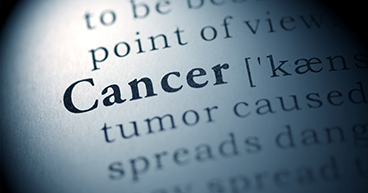
A cancer diagnosis often comes with an overwhelming amount of information for patients to sift through and remember. Between appointments, meeting with various doctors and clinicians, and digesting treatment and nutrition information, it can be difficult to keep track of it all. There’s so much to focus on at a time when you’re dealing with an experience that has likely turned your life upside down.
“Early on, patients are receiving information about their diagnosis, treatment and services,” says Elaine Smith, Mind-Body Therapist at our hospital outside Atlanta. “Ultimately, I think that some of the information probably gets missed by patients.”
Many patients describe their initial meetings as a blur, with doctors bombarding them with details when all they remember is hearing the word cancer. Studies show many cancer patients don’t fully understand their disease, treatment options or prognoses. In some cases, patients are too overwhelmed to absorb the information. That’s because cancer is complicated. The whole experience may feel like you have to become fluent in a new language in a matter of days.
Information overload
Newly diagnosed patients have lots to learn and so much information to decipher. The Internet may be a great resource, but it is challenging to sort through the vast amount of information about cancer treatment, including misinformation disguised as facts. Well-intentioned loved ones may try to help by sharing studies, ads and other data filled with inaccurate and misleading data. Trying to separate fact from fiction may take up a lot of time, if you let it.
Add to that feelings of anxiety and confusion, and it all may be difficult to take in. But amid the fog of a cancer diagnosis, you can take important steps to make this difficult time easier to process, especially by being proactive in your care, learning about your disease and building a strong support system.
“It’s important to have a caregiver with you to function as your proactive agent,” says Smith. “This person should not only listen to what your medical team says, he or she should record it. Your caregiver should help keep track of all the details involving your care by writing down the information. This will help both of you understand your treatment plan.”
Be prepared with questions
Having a pragmatic, supportive caregiver is an important first step. Patients who take an active role in their own care may also find it helps them regain control during a time of uncertainty.
“You are allowed to ask questions,” says Smith. “As a patient, you are not just there to give information—you are there to get information. If you don't understand what a doctor is saying, ask questions. When I have patients ask me questions, I am excited, because I see them as being proactive, and I encourage that. Some patients may be hesitant to ask questions, for fear of offending someone they look up to as an authority figure, but proactivity is extremely important to their own health. Patients need to understand they are the reason doctors and clinicians are there. ”
It may help to prepare a list of questions for your doctor before your appointment. Communicate with your medical team, and tell them how much information you want. Some patients like to have a lot of information about their disease. Others prefer to hear only what is necessary to making educated treatment decisions.
Smith says it’s also okay to let your doctors know if you’re feeling overwhelmed. “Say to them, ‘Let’s slow down for a minute,’ and put your thoughts in order,” she advises. “During some doctor visits, patients may hear factual information, but they have an emotional reaction to it. That emotional reaction is fear, worry and what-ifs—let your medical team know if you’re being overloaded with information and ask for clarity.”



